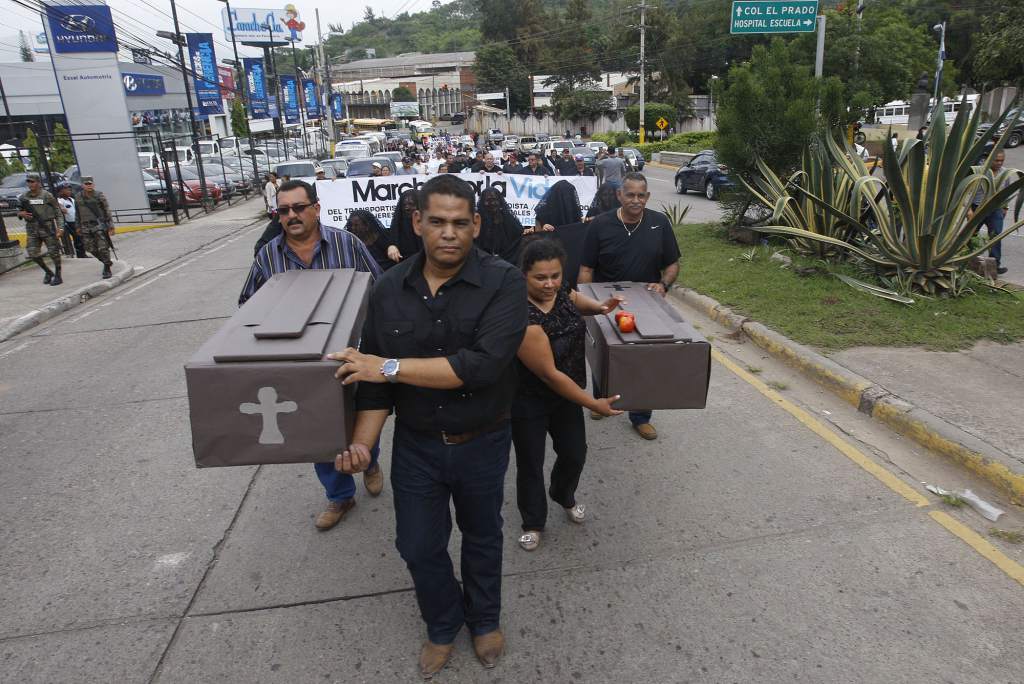Public transport workers in Honduras called off a strike after the government agreed to new security measures to stem violence and extortion affecting bus drivers. However, other experiences around the region suggest that this move may not be enough.
The strike took place over the course of eight hours on October 22 in capital city Tegucigalpa and was resolved after the government agreed to boost police patrols and install security cameras in buses and bus stops, reported La Prensa. The government also agreed to introduce military patrols in markets, as well as bus terminals and stops.
The strikers called for the government to take action to halt a wave of violence that has seen 58 bus drivers killed so far in 2014, according to La Prensa. The most recent murder came just two days before the strike.
The head of the Honduran government’s transportation division claimed that the protesters were seeking to recuperate missed subsidy payments, a claim denied by the president of the Honduras National Transportation Council.
InSight Crime Analysis
Extortion of public transportation is rife in Honduras and other countries around the Northern Triangle region. Street gangs charge bus companies for the right to move through their territory; drivers are killed and buses torched if the payments aren’t made. Such incidents have become so common in places like Guatemala that being a bus driver there has been dubbed the “most dangerous job in the world.”
While these new measures could provide some additional security for bus drivers, it remains to be seen whether it will actually lead to decreased violence against public transport workers. Putting more security cameras at bus stops could yet prove to be just a band-aid solution, one that doesn’t fully address the power of the gangs that are able to harass and kill bus drivers with impunity.
SEE ALSO: Honduras News and Profile
Other countries have struggled to resolve the issue of violence against public transport workers. In neighboring El Salvador, the government once deployed anti-terrorist units to patrol bus routes, and also made it obligatory to use electric cards to pay for bus fare — a system Honduras is also exploring. However, these measures haven’t made much of a dent in El Salvador: extortion fees of bus companies reportedly doubled between 2013 and 2014.

